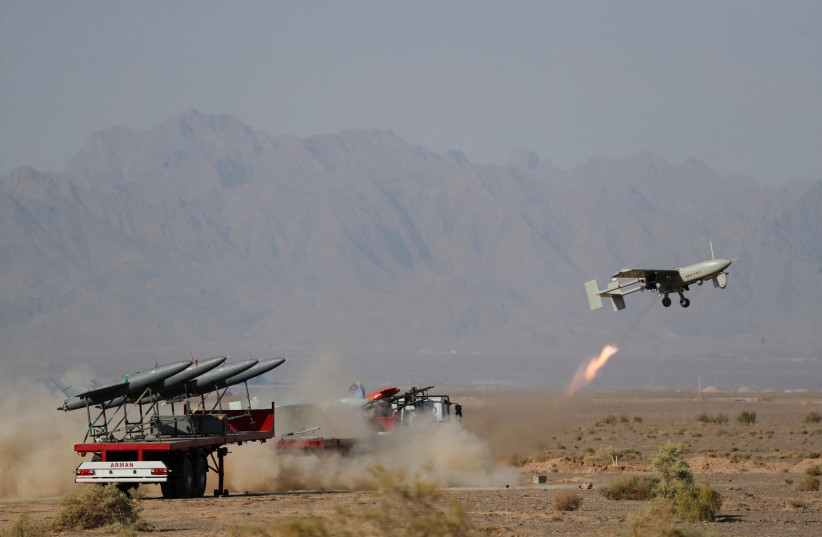Alleged Israeli airstrikes targeted a site belonging to Hezbollah's drone development unit at the al-Qusayr airport in Syria near the border with Lebanon on Sunday, the Saudi Al-Arabiya channel reported on Thursday.
The alleged airstrike came a day before alleged Israeli missile strikes on a number of sites south of Damascus and near the Damascus International Airport in which at least two Syrian soldiers were injured.
Anonymous sources told Al-Arabiya that the al-Qusayr Airport has been turned into a research and development center for Iranian drones used by Hezbollah's Unit 127.
According to the Alma Research and Education Center, Hezbollah's Unit 127 also has bases at the Palmyra military airfield and in the desert region southeast of Palmyra. The unit specializes in the production and maintenance of UAVs operated by Hezbollah's air unit in Syria.

Hezbollah reportedly storing chemical weapons at same site
Last month, Al-Arabiya reported that Hezbollah was storing hundreds of missiles carrying a toxic chemical payload at a warehouse in al-Qusayr.
The missiles include 110 Fajr missiles and over 300 Fateh missiles and are all carrying thionyl chloride, a toxic chemical, according to the report. The weapons and other equipment were transferred from the Syrian Scientific Studies and Research Center (SSRC) in Masyaf to the location in Al Qusayr nearly two weeks ago.
Sources informed Al-Hadath that experts from North Korea injected the toxic chemicals into the missiles under the supervision of an Iranian national and expert specializing in chemical weapons, identified as Qassem Abdullah Massoudyan.
The Saudi news channel added that the missiles are only being temporarily stored in Al Qusayr and will be moved on to the Bint Jbeil area of the Nabatiyeh governorate in Lebanon near a base belonging to UNIFIL.
